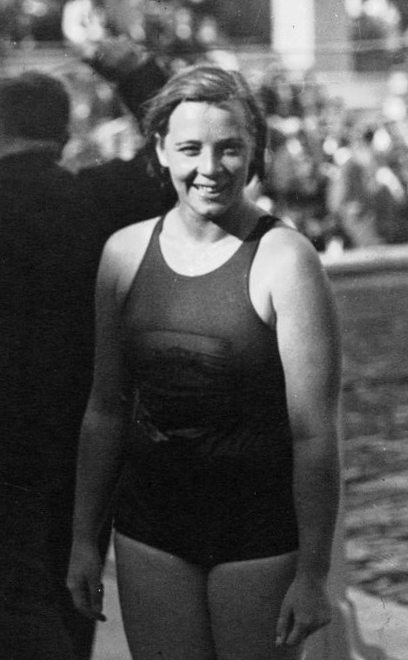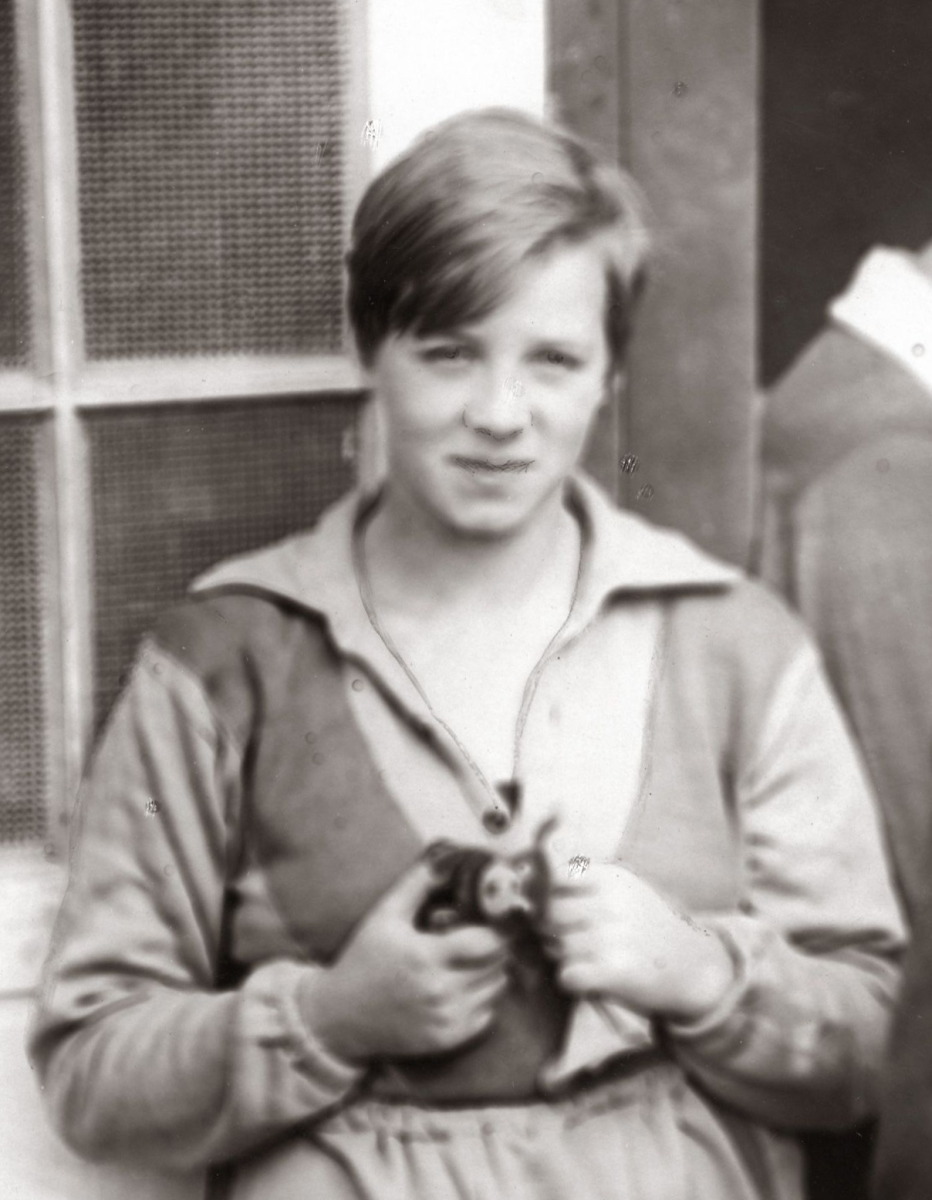1. Early Life and Background
Marie Braun was born on June 22, 1911, in Rotterdam, Netherlands. Her full name was Maria Johanna Philipsen-Braun. She was the daughter of Ma Braun, a highly influential and successful Dutch swimming coach who notably coached the Dutch women's swimming team across five Olympic Games, from 1928 to 1958. Ma Braun's guidance played a pivotal role in Marie's development as a competitive swimmer. Marie Braun stood at 5.6 ft (1.7 m) tall.
2. Competitive Swimming Career
Marie Braun's competitive swimming career was characterized by remarkable achievements on both the European and Olympic stages, where she consistently demonstrated her prowess in both backstroke and freestyle events, breaking numerous records.
2.1. Early International Successes
Braun's international career began to flourish at the 1927 European Aquatics Championships held in Bologna. At this event, she secured a gold medal in the 400 meter freestyle, and two silver medals in the 100 meter backstroke and the 4×100 meter freestyle relay. Building on this early success, she continued her dominance at the subsequent 1931 European Aquatics Championships in Paris. There, Braun achieved an impressive triple gold medal haul, winning the 400 meter freestyle, 100 meter backstroke, and 4×100 meter freestyle relay events.

2.2. Olympic Participation and Medals
Marie Braun represented the Netherlands at two Olympic Games. Her most significant Olympic triumph came at the 1928 Summer Olympics in Amsterdam, her home country. She clinched a gold medal in the 100 meter backstroke, becoming the first Dutch woman to win an individual Olympic event in swimming. Additionally, she earned a silver medal in the 400 meter freestyle event at the same Games. Her strong performances solidified her reputation as a formidable swimmer and positioned her as a favorite for the next Olympic cycle. She also participated in the 1932 Summer Olympics in Los Angeles, though her competition was unfortunately cut short.

2.3. Medal Record
Throughout her career, Marie Braun achieved significant success in major international competitions, earning numerous medals as detailed below.
| Event | Gold | Silver | Bronze |
|---|---|---|---|
| 1928 Amsterdam Olympics | 100 m backstroke | 400 m freestyle | |
| 1927 European Championships (Bologna) | 400 m freestyle | 100 m backstroke 4×100 m freestyle relay | |
| 1931 European Championships (Paris) | 400 m freestyle 100 m backstroke 4×100 m freestyle relay |
2.4. World and National Records
Throughout her illustrious career, Marie Braun was a prolific record-breaker. She established a total of six world records, showcasing her exceptional talent and speed on the global stage. Beyond her world records, Braun also set an impressive 25 national records within the Netherlands, further solidifying her status as a national swimming icon.
3. 1932 Los Angeles Olympics Incident
The 1932 Los Angeles Olympics marked a dramatic and controversial turn in Marie Braun's career, as a sudden illness forced her withdrawal and led to serious allegations of foul play.
3.1. Sudden Illness and Withdrawal
Having been a leading favorite for medals at the 1932 Los Angeles Olympics following her previous successes, Marie Braun's participation was unexpectedly derailed by a severe and sudden illness. After competing in the 400 meter heats, she was hospitalized with an extremely high fever, reaching 107.6 °F (42 °C). Her condition was so serious that she remained hospitalized for three weeks, ultimately leading to her withdrawal from the swimming competition, including the 100 meter backstroke final, an event in which she was the defending Olympic champion.
3.2. Suspected Intentional Injury and Allegations
Upon her return to the Netherlands, Marie Braun held a press conference where she made shocking allegations regarding the cause of her illness. She claimed that her illness was not a natural occurrence, but rather the result of a deliberate attempt to injure her. Braun recounted that on August 9, while observing the 400 meter men's freestyle final from a section reserved for foreign Olympic participants, she suddenly felt a sharp pain, described as a "stab," in her left leg. She also noted that two young American men, who had been sitting in front of her and appeared to be suspiciously monitoring her, promptly vanished from the scene immediately after she felt the pain.
As her leg began to seize up the following day and her fever escalated, leading to her hospitalization, she recalled the incident. During her examination by four doctors at the hospital, she reportedly overheard one of them comment, "But this is not an infection," before they realized she understood English and moved their discussion elsewhere. This incident, combined with her strong conviction, fueled widespread speculation, including a possible connection to illegal gambling activities surrounding the Olympic events. The claim highlighted the darker side of competitive sports, where external factors could allegedly interfere with an athlete's performance.
4. Retirement and Later Life
Following the traumatic events and her withdrawal from the 1932 Los Angeles Olympics, Marie Braun retired from competitive swimming shortly thereafter. She did not return to the sport at the elite level. After her swimming career concluded, publicly known details of her life are sparse. Marie Braun passed away on June 23, 1982, in Gouda, Netherlands, one day after her 71st birthday.
5. Legacy and Honors
Marie Braun left an indelible mark on the world of swimming, not only through her remarkable athletic achievements but also through the controversies that surrounded her career. Her legacy includes numerous records and Olympic medals.
5.1. International Swimming Hall of Fame Induction
In recognition of her outstanding contributions and achievements in competitive swimming, Marie Braun was posthumously inducted into the International Swimming Hall of Fame (ISHOF) in 1980. This induction is a significant honor, recognizing her as one of the sport's all-time greats and cementing her place in swimming history despite the abrupt and controversial end to her competitive career.